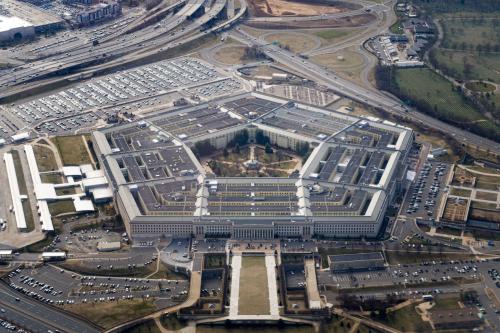This morning, President Barack Obama delivered a speech at the United Nations that marked an important turning point in American foreign policy—and in his presidency.
Although the speech was wide-ranging, at its heart was a firm and often passionate defense of the United States’ decision to go on the attack against ISIL:
This group has terrorized all who they come across in Iraq and Syria. Mothers, sisters, and daughters have been subjected to rape as a weapon of war. Innocent children have been gunned down. Bodies have been dumped in mass graves. Religious minorities have been starved to death. In the most horrific crimes imaginable, innocent human beings have been beheaded, with videos of the atrocity distributed to shock the conscience of the world.
No God condones this terror. No grievance justifies these actions. There can be no reasoning—no negotiation—with this brand of evil. The only language understood by killers like this is the language of force. So the United States of America will work with a broad coalition to dismantle this network of death.
Before the entire world, the president of the United States has committed his country to a complex and challenging task that will take years. Whatever the obstacles and costs, there can be no turning back.
Mr. Obama repeatedly underscored a basic reality: the United States cannot do this job alone. Not only must others in the region contribute ground forces and other vital resources to the struggle, he insisted, but also the region’s leaders must engage in a concerted effort to delegitimate terror in the name of Islam:
It is time for the world—especially Muslim communities—to explicitly, forcefully, and consistently reject the ideology of Al Qaeda and ISIL.
It is the task of all great religions to accommodate devout faith with a modern, multicultural world. No children—anywhere—should be educated to hate other people. There should be no more tolerance of so-called clerics who call upon people to harm innocents because they are Jewish, Christian, or Muslim. It is time for a new compact among the civilized people of this world to eradicate war at its most fundamental source: the corruption of young minds by violent ideology.
That means cutting off the funding that fuels this hate. It’s time to end the hypocrisy of those who accumulate wealth through the global economy, and then siphon funds to those who teach children to tear it down.
These words will not make for comfortable reading in Jeddah or Doha, but they are the plain truth.
The president went on to make a point that should induce some discomfort in Washington DC. We must, he said, contest the space that terrorists occupy—including the Internet and social media.
Their propaganda has coerced young people to travel abroad to fight their wars and turned students into suicide bombers. We must offer an alternative vision.
Unfortunately, the United States has spent the better part of two decades neglecting and in some cases (the United States Information Agency, for one) dismantling the institutions that allowed us effectively to contest antidemocratic ideologies during the Cold War. It is past time to think about rebuilding them for this increasingly violent new century.



Commentary
Obama’s 2014 UN Speech Marks a Turning Point in His Presidency and Foreign Policy
September 24, 2014